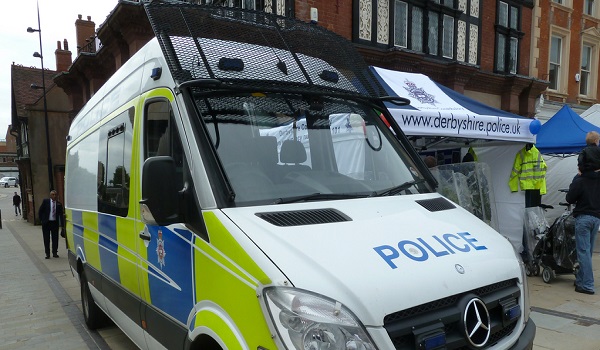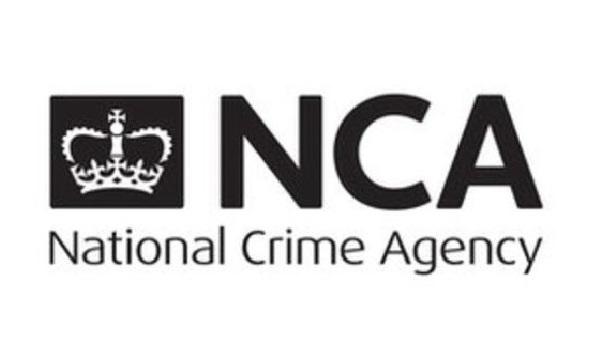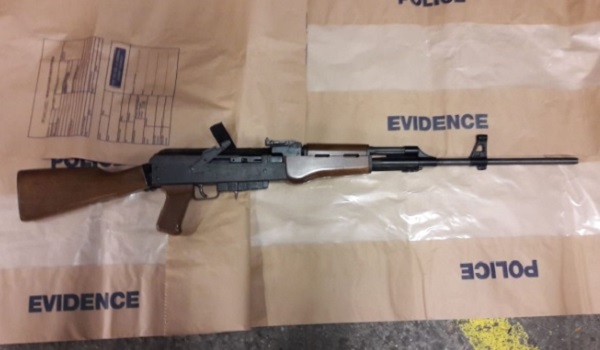Force’s crime-recording arrangements ‘exceptionally poor’
Inspections of crime data integrity have found that two forces struggle to record violent crime, domestic abuse and rapes.
Her Majesty’s Inspectorate of Constabulary and Fire & Rescue Services (HMICFRS) has found that Derbyshire Constabulary’s crime data integrity is ‘inadequate’ and Hampshire Constabulary ‘requires improvement’.
However, Hampshire Constabulary was commended for identifying the areas which required improvement through internal audits prior to HMICFRS’s inspection.
Both forces had difficulties with recording reports of rape, as staff did not properly understand the Home Office classification N100.
Hampshire officers did not always record rape reports when they should have, because in some cases they apply a practice of investigate to record, whereby officers seek to prove or disprove the report before making a crime-recording decision.
Derbyshire Constabulary was also criticised for its lack of training on importance of believing the first account of the victim and how to correctly record rape crimes involving multiple offenders.
The force was also criticised for its inability to make the correct crime recording decisions due to deficiencies in its process.
HMICFRS estimated that the force is only recording 65.3 per cent of crime reports and is consequently missing 30,300 reports each year.
Reports of violent crime were severely under-recorded (56.6 per cent). Because of how distressing violence is to the victim, HMICFRS said the need to improve was especially acute.
The inspectorate said: “These failings are a serious cause of concern and are depriving many victims of the services to which they are entitled.
HM Inspector Zoë Billingham said the force’s crime recording standards are exceptionally poor.
“I am deeply troubled and disappointed that Derbyshire Constabulary is failing to put over a third of crimes reported to it on the record.
“When a reported crime is not recorded, victims are denied an effective police response and ultimately they are denied justice.
“We last inspected Derbyshire Constabulary’s crime recording approach in 2014. We revealed a number of deficiencies in the force’s processes and, as a result, we made a number of recommendations aimed at improvement. Unfortunately, the report released today shows that much of what we recommended has not been progressed.”
Derbyshire Chief Constable Peter Goodman said: “Firstly, I think it is really important to stress that this report doesn’t reflect the care and compassion victims of crime receive from our dedicated police officers every day. Nor does it reflect the work they undertake to prevent and reduce offending in our communities.”
Mr Goodman also noted that he had concerns with the crime recording system and argued that counting rules should not be used as a method to measure the effectiveness of the police response.
He said: “As an example, I point to one of the case studies used in this report which creates an impression we have not supported a vulnerable crime victim, and assumptions similar to this seem to have been made throughout, but that is absolutely not the case. In another case highlighted, allegations of a serious sexual offence were recorded and investigated; all suspects were identified and arrested, and support provided to the victim, yet because crimes were not recorded for each suspect, this is reported as a failure by HMICFRS.
“Adhering to counting rules alone does not protect the public, accurate recording of information in the right place at the right time does. I accept that we do have improvements to make and plans are in place to achieve this. We are committed to improving what we do, with a focus on supporting victims rather than simple compliance and I have called for a new and relevant index of harm to be created that better describes the modern policing mission and for a more granular crime survey of England and Wales,” Mr Goodman added.
Hampshire Constabulary had paid more attention to sexual offences since a 2014 inspection of crime data integrity, and found it was now recording 91 per cent of such crimes.
However, it noted that often where multiple sexual offences were being reported, the force often recorded only one.
While not systemic, HMICFRS said some officers were taking an approach “to investigate to report” which means that officers are seeking to prove or disprove the report before making a recording decision. However, this is “direct contravention of the general principles of crime recording and an area for immediate improvement.
The inspectorate was disappointed that, as this improvement featured in the 2014 report, the force had not addressed the issue.
Hampshire Constabulary had established a gold group to lead improvements in crime recording since the 2014 report, and also developed and provided crime-recording training to officers and staff responsible for making crime-recording decisions and fully implemented a national action plan developed to improve crime recording by police forces.
Assistant Chief Constable Scott Chilton said: “HMICFRS has made clear the massive progress made by Hampshire Constabulary on crime recording. Most importantly, it affirms that our officers and staff are victim focused and we have the right leadership approach. The report also makes clear that in the vast majority of cases we are recording crime, safeguarding victims and investigating crime in the right way.
Mr Chilton also told Police Professional: “Overall the report includes a strong endorsement of our approach, recognising that we have made significant improvements to crime recording and the support we give to victims. I’d like to thank all of our officers and staff for their hard work.”







